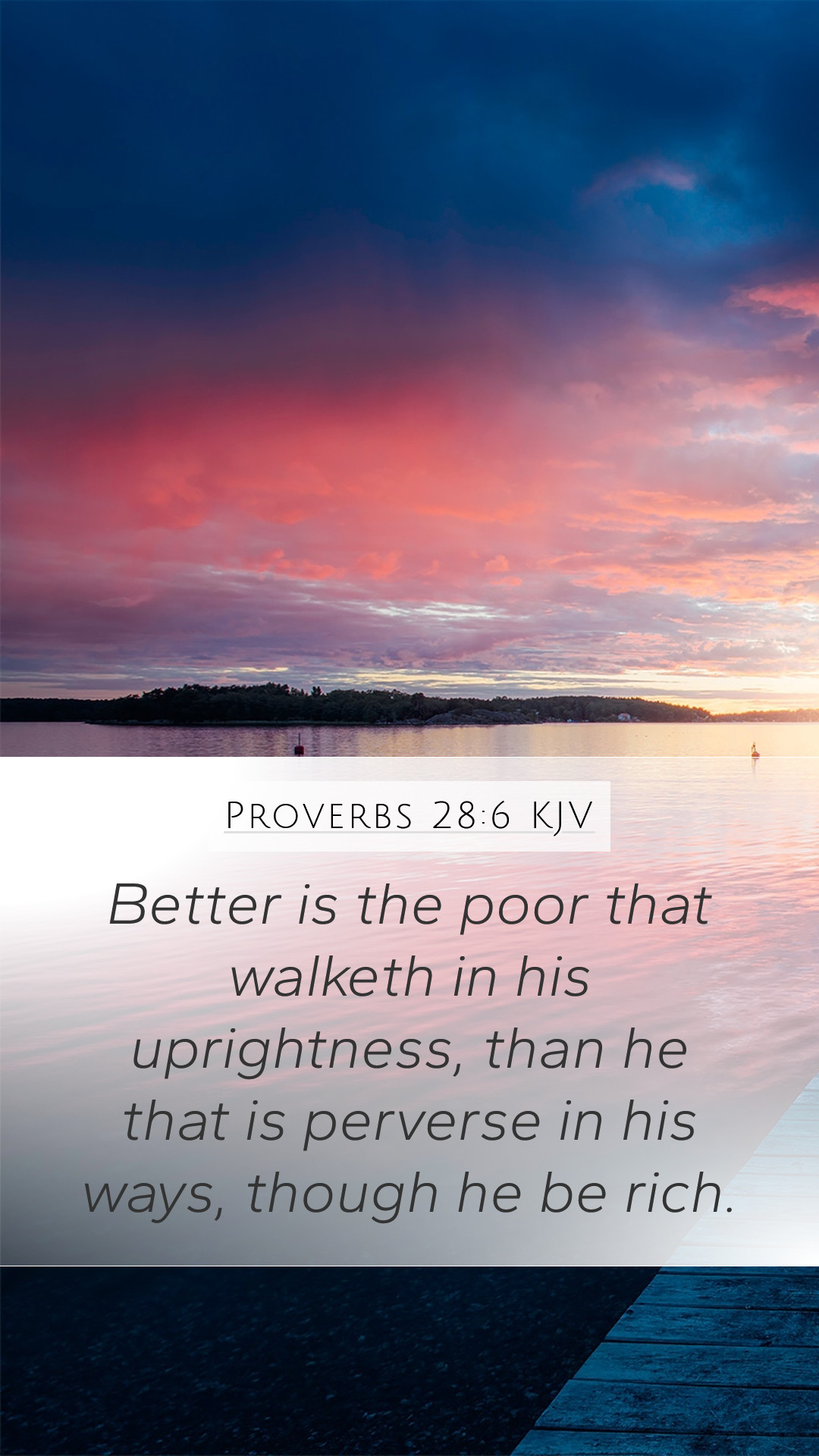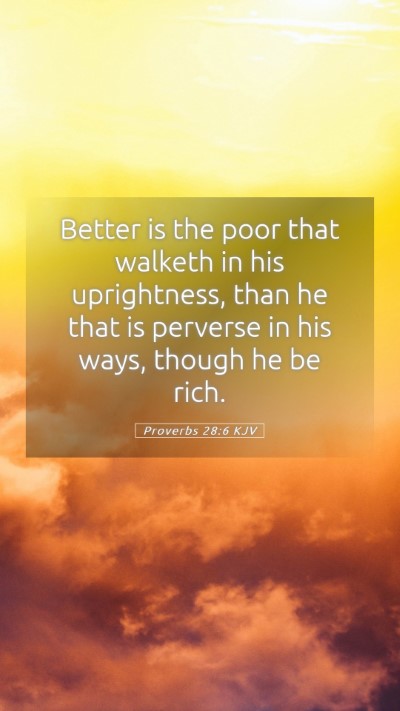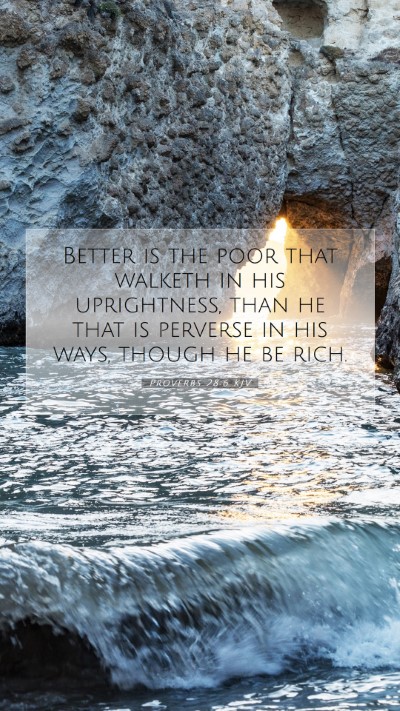Understanding Proverbs 28:6
Proverbs 28:6 states, "Better is the poor that walketh in his uprightness, than he that is perverse in his ways, though he be rich." This verse contrasts two types of individuals: the poor who live righteously and the rich who engage in deceitful practices. The verse emphasizes that moral integrity and righteousness are of far greater value than material wealth.
Bible Verse Meanings
-
Righteousness vs. Wealth: The core message highlights the superiority of a moral life over the advantages of material riches. The poor man, although lacking in worldly wealth, possesses a wealth of righteousness that brings him favor in the eyes of God.
-
Characteristics of the Poor and the Rich: The 'poor' in this context does not solely represent financial status but implies a lifestyle rooted in virtue. Conversely, the 'rich' characterized as 'perverse' speaks to individuals who prioritize deceit and immorality over ethical behavior.
-
Societal Values: This verse critiques societal norms that often glorify wealth and success, suggesting that true esteem should be awarded to those who lead righteous lives, regardless of their economic status.
Bible Verse Interpretations
-
Matthew Henry remarks on the importance of integrity, pointing out that a clear conscience is a treasure that outmatches riches. He notes that integrity often leads to a sense of security and peace that wealth cannot provide.
-
Albert Barnes emphasizes that the poor man’s uprightness leads to a more fulfilling and stable life. He highlights that wealth gained by dishonest means can lead to instability and a troubled conscience.
-
Adam Clarke discusses the conditions of the heart, noting that material riches can corrupt one's behavior. According to him, those who are rich without integrity will ultimately experience emptiness despite outward appearances of success.
Insights and Applications
-
Personal Reflection: Consider how you measure success in your life. Are integrity and moral uprightness prioritized over financial gain?
-
Group Discussion: Engage with your Bible study groups to analyze scenarios where ethical dilemmas arise and how this verse applies. Reflect on real-life instances that resonate with the duality of wealth versus righteousness.
-
Daily Application: Look for opportunities in daily life to practice integrity, regardless of the economic or social benefits that might come from dishonesty.
Additional Bible Verse Commentary
Proverbs 28:6 encourages Bible study insights highlighting the importance of living justly in today's world. This verse serves as a beacon for those navigating complicated ethical landscapes, showing that a good character is worth more than earthly possessions.
Cross-References
- Proverbs 10:2 - "Treasures of wickedness profit nothing: but righteousness delivereth from death."
- Proverbs 19:1 - "Better is the poor that walketh in his integrity, than he that is perverse in his lips, and is a fool."
- Luke 16:15 - "And he said unto them, Ye are they which justify yourselves before men; but God knoweth your hearts: for that which is highly esteemed among men is abomination in the sight of God."
The proverb succinctly reminds believers that God values character over cash. As such, it promotes the understanding that while society may prize wealth, divine endorsement lies with those who conduct themselves uprightly.


